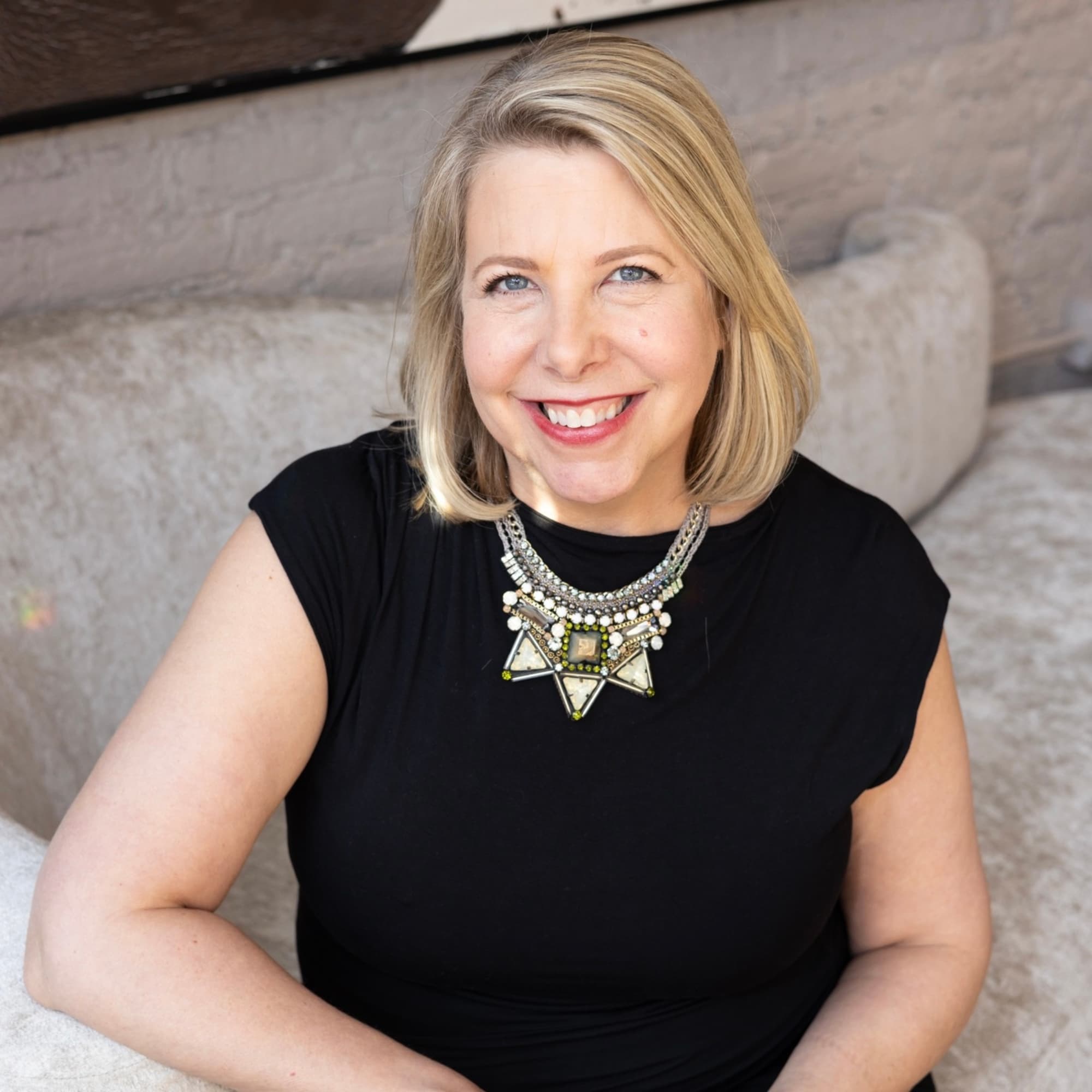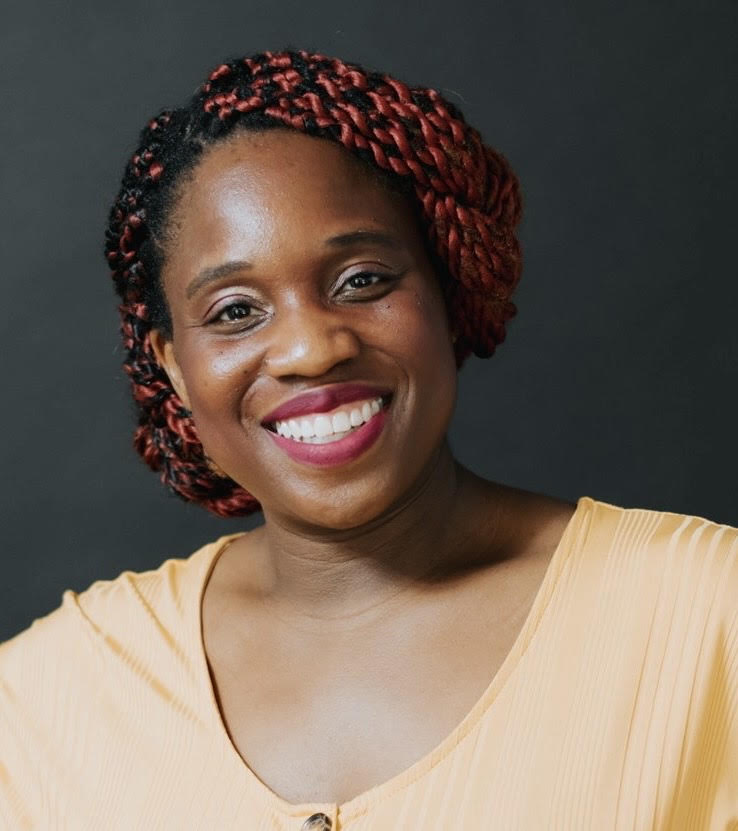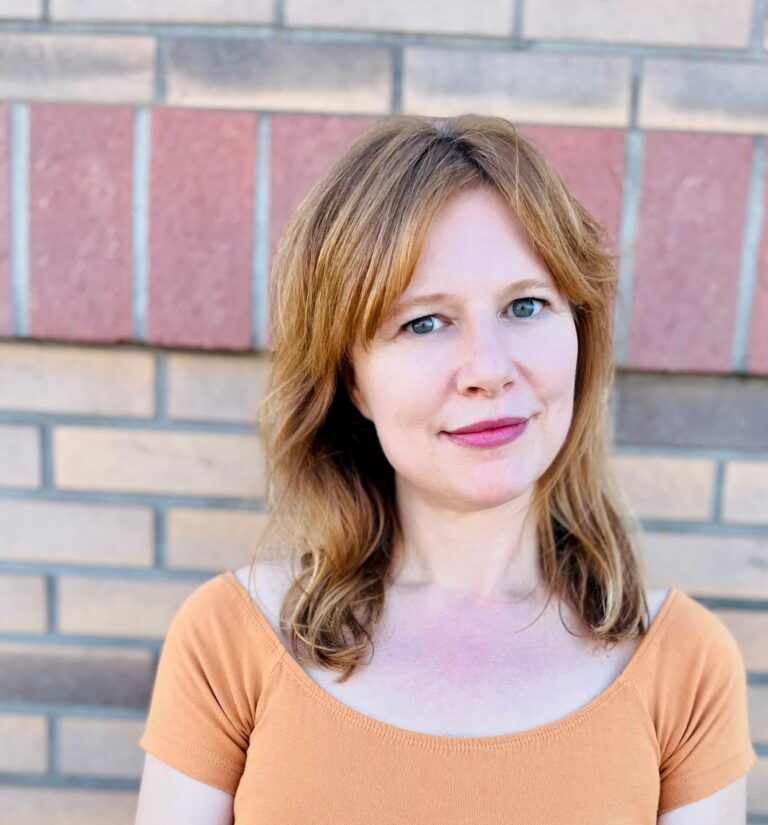Grief in the Workplace: Transforming Bereavement Policies
Jody LaVoie’s life took a sharp turn one day when tragedy struck her family in the most unexpected way—her husband Steve was shot by a disgruntled employee at the business they poured their hearts into. Overnight, she went from being a stay-at-home mom to the boss of a $50 million company, all while juggling her own grief and the immense task of raising three kids as a solo parent.
But here’s where it gets really interesting. Jody transformed her pain into helping others manage grief in the workplace by advocating for better bereavement policies and creating a more compassionate and understanding environment for those grieving.
Key topics in this episode include:
- Balancing personal grief with professional responsibilities
- The need for organizations to understand and support employees dealing with loss
- Finding new meaning and purpose after a significant life change
This tale of transformation from a stay-at-home mom to a formidable business leader and advocate for widows and the bereaved in the workplace is nothing short of inspiring. From stepping into her husband Steve’s shoes at work to transforming her pain into a mission to support others, Jody’s journey is a raw, unfiltered look at facing life’s toughest battles head-on.
Listen to the Full Episode
Links + Resources From This Episode
- Widows in the Workplace
- The Grief Company
- Are you searching for emotional support, practical advice, and guidance on navigating widowhood? Join us in the Widow Squad membership.
Episode Transcript
Melissa: Hey, Jody. It is great to have you here.
You were one of our speakers at our virtual summit last November, the Holiday Hope Summit, and it’s really good to see you again.
Jody: Thanks for inviting me, Melissa.
Melissa: Well, let’s dive right in. I was wondering if you could share a little about your widow story and how you and your husband met and all of that.
A Tragic Turn and Unwavering Strength
Jody: Absolutely. I love the how we met part because that’s the fun part, right? I’ll start with that.
I met my Steve on a blind date in Chicago, and he was wearing one of those fur babushka Russian hats. It was February. Not a first date hat, but the rest is history.
We got married and had three kids, and he started a business of which I was fully in support of. And in 2014, he demoted our chief technology officer, who came back to the office and shot my husband and then killed himself.
Melissa: Oh, Jody.
Jody: Yes.
Melissa: I’m so sorry.
Jody: All widow stories are terrible. But this is one you don’t expect. The news called me soon after a police officer knocked on my door and just said my husband had been injured. And they said, “your husband has been shot, do you have a comment?”
That’s how I learned about my husband being shot.
Melissa: From the news?
Jody: From the news. It happened that fast. He did not pass away right away, but he never regained consciousness. He was getting care for three months. So overnight, I started caring for our three children who at the time were nine, 12, and 15.
And I took over running his business. I was a stay-at-home mom. Now, all of a sudden, I’ve got a lot of responsibility on my shoulders. The business was a very good-sized business, $50,000,000 in revenue, 65 employees, downtown Chicago. And so, I was in charge of that. I was in charge of my girls. I was grieving. I was trying to figure it all out.
Melissa: Were you in the same building? You went to work in the same building, in the same office your husband was shot in?
Jody: I did. And I guess one of the blessings was that it was a big office, and we had more square footage than we needed. So that incident happened kind of around down the corner. We moved everybody out of that part of the office. We didn’t really have to go over there. One of my neighbors was in construction working in this building in Chicago, and he offered to come and knock down my husband’s office and plop in some cubes and make everything kind of go away and make it look like nothing happened, which, of course, we all know it did. But at least visually, we didn’t have that reminder, and that was very, very kind.
But my daughters were scared. Like, their mom has to go back to work every day, right where their dad got killed and that stuff’s not supposed to happen.
Melissa: No, it’s not. That is so out of order. So, walk me through this. You started running the business.
After how many months? Was it after the three months after Steve died? Or was it a year?
Jody: It was 24 hours after he was shot because he wasn’t conscious. And we were the largest shareholders. And that was the plan. Like, if something were to happen to him, I would be in charge. And that was the extent of the plan. I was a stay-at-home mom and then I wasn’t.
Melissa: What did you understand about the business? Were you just learning while you’re in shock and traumatized?
Jody: Well, you know, fortunately, over the years, I had worked on and off in the business doing whatever needed to be done. I was doing the books, doing some marketing, doing some sales, doing some HR work. But I had taken eight years off from day-to-day operations in the business. But we talked about it every day. It was like our 4th child. So, I knew what was on Steve’s mind. I knew what his goals were, and I knew where he felt the struggles were in the business.
I’d met many of the employees. In fact, we’d been to a picnic at the home of this gentleman who shot my husband. The most important part is we had a great team. Everybody cared about and loved my husband, Steve, and they all jumped in. And, I mean, when this happened it affected everybody because people don’t think about who the first responders really are in this type of incident, and it’s the employees.
But they hit the phones the next day, calling customers, reassuring them everything’s gonna be okay, you know, regarding the business piece of it and sharing what they could about Steve.
Melissa: So, Jody, where is this, I don’t even know what you want to call it, strength, or resilience, or where is this energy coming from for you to just immediately step in and grieve and parent. Where is this coming from?
Jody: Oh my gosh. An inner resolve for sure. I didn’t know any differently. Like, I just get stuff done. That’s who I am as a person. I’d love to say I did a great job of grieving, but I didn’t. I was working on the business and my kids and trying to get some sleep.
And that was about all I could do. And my health over a 2-year time period really suffered.
Melissa: Right. I mean, you and I have a similar situation where I took five weeks off and went right back to work. And I am someone that gets stuff done. I like to work off lists. I like to do all the things, the business tasks. And so that, for me, put off actually grieving or acknowledging the loss and how it affected me and my kids, and I wasn’t taking good care of myself. So that’s not recommended.
Jody: Not recommended. And the other thing I really discovered was anger. I was very angry that this happened to my husband, and there was no way I was going to let this man who took my husband’s life take the business down, my family down, or me down. That was not top of mind at that moment, but I really believe that’s what was driving me.
Melissa: That makes sense. Something kicked in. It’s kind of self-preservation. I need to preserve my family and my business. And this person’s not gonna take that away from you, too. So that makes sense.
Jody’s Crusade for Bereavement Support
Melissa: Do you still own the company? Or what are you doing now?
Jody: Good question. I am not running the business now. I sold the business back in 2017, and that was always the goal. We had friends and family investors and, of course, ourselves, and everybody was always waiting for when that day would come. And when this happened to my husband, that was not the right timing for the business. We needed to work on the business and grow it. And we could do that in three years and sell.
I like to say I could finally breathe because I had a weight on my chest of just pressure and stress and grief that’s not getting processed and when I sold, I felt like I could breathe. I literally have a sign on my wall that said, “just breathe” because I felt like I needed that reminder. Next, I took a year to take care of myself and heal and go away on some guided personal retreats. I had some time to think. What is it I want to do next for me? Because I certainly didn’t have any time to think about that in those three years.
Melissa: So, when you’re asking yourself those questions, like, what’s next for me or who am I now that I’m not running this business? What were some answers that were coming up for you?
Jody: I really love supporting women in the workplace. Because in the role that I had, there weren’t a lot of women in that space at that level. It was a supply chain technology business. And it’s unfortunately still a challenge for women at all levels in the workplace. So, I knew women in the workplace was one thing, and widows, the bereaved was another. I really started with widows because, obviously, that’s an experience that I had directly. And so, that’s where I started with my thinking.
And then, how do I do that? And what does that look like was kind of the next step.
Melissa: So, what does that look like? Tell me.
Jody: I began as a coach for widows in the workplace, working one-on-one with them via Zoom. And then I’ve expanded what I do to support all bereaved in the workplace. Again, through looking at corporate bereavement policies. What do those look like? And how can we make them better and more robust? And training managers and employees on how to talk to each other. How can you support your coworkers? What are some good things to say? What are some not good things to say? I’ve got the corporate side and the widow side. So that’s what I do.
Melissa: Gosh. You know, I wish I had a resource like that. I was working for a Fortune 500 company, a large company, and they were they were great. They had a bereavement policy in based on your relationship to the person who died. So, there were three days for a spouse, two days for a parent or a child.
I’m like, that’s not even going to help me. Luckily, I had some good friends in HR who basically held my hand through the entire process and helped me go on short-term disability. I had to get notes from my doctor. I took a stress leave for five weeks because Dave’s death was very sudden and unexpected. So, no preparation. I wouldn’t have known how to do that unless I had these friends who were like, “hey, this is what you need to do. This is how you navigate these policies.”
I’m sure people in my company didn’t have acc to good friends in HR. So, I wouldn’t have known to do that. I would have just immediately gone to work and just been worse off. Even five weeks was not enough.
But, yeah, bereavement policies, not super great. And we’re coming here from the US. So, I don’t know about other countries, but I don’t feel like we have decent bereavement policies, in place, or even ways to educate management on how to support the people who are grieving and the people on their teams who don’t know what to say.
Is that what you dig into with these companies or with your company?
Jody: Yes. All of that. There is a kind of two-pronged approach. I can absolutely look at what are you specifically, tangibly offering employees from a tactical and policy perspective, and how can you get those things in the hands of the managers who usually get the first call when things like this happen.
Because I bet if you asked out there to all the listeners who have corporate jobs, do you know what your bereavement policy is? If you’re a widow, you probably do because you have asked, but most people don’t. They don’t even know what it is. And so, when something happens to you overnight like this, and what happened to you, Melissa, you go back to the far part of your mind, and you’re like, where is that packet I got every year about what our benefits are? And that’s the last thing you want to be doing.
That’s one aspect of it. And the second is, before there’s a loss, to meet and train and educate in a half-day class on how to have empathy for those grieving in the workplace. What are some good things to say? What are some not good things to say? What is grief? How is it even present in your body, in your mind, in your actions?
Because if you haven’t experienced it, you don’t know. And we don’t talk about this stuff.
Melissa: We don’t.
Jody: In life, nobody wants to talk about death and sad things. And, well, we’re all gonna die.
Melissa: Right. It happens. It’s gonna happen to all of us, and it happens to everybody. Everybody’s gonna lose somebody close to them at some point in their life.
Jody: One in four people in the workplace are grieving a loss. So that’s a lot.
Melissa: Well, how do you find these companies that are open to this?
Or are they like, “we’ve got our policy and we’re good. Thank you very much.”
What are you finding?
Jody: I think it’s across the board. So, yes, there are some that are very progressive in how they approach mental health in their workplace and the type of support they have. They are open to communicating and talking about feelings where employees don’t feel like if they display any kind of vulnerability, their job might be in question.
The type of companies that are not open, this would not be a good fit for. What I found is the ones that I’ve had the best inroads with are when their senior leadership has actually experienced a loss themselves because they get it. They’ve lived it. And they don’t want anyone else to feel like this. So that makes them a lot more open to this conversation.
Melissa: Do they reach out to you or you’re reaching out to them? I know that you just spoke in front of a rather large audience about this subject. Who were the folks in that in that audience?
Jody: All business leaders. CEOs, founders, presidents of companies. They’re the big decision makers. They can get the ball rolling. Frequently, they then hand it off to human resources. And for all the human resources people out there, you’re overwhelmed. I know it.
There’s so much for you to consider and need to push out to your employees, and please consider bereavement. It’s a very important topic.
Envisioning a Compassionate Future
Melissa: What would you like to see in a perfect world for the employee manual to say about bereavement? What would you like that to look like for companies?
Jody: I see it as twofold. For the employee, it would be step-by-step here’s what you do. Step 1-2-3. But when somebody loses somebody, they’re not gonna whip out that employee manual. Their first call is going to be to their manager. So that manager that can really hold their hand through that process. By educating all your managers, because they’re really the front line of your employees, that’s really where you can make big inroads.
Melissa: So, it’s really educating those folks at the top.
Jody: Yes. Because how you handle this type of situation is ultimately going to make or break it for your employees. Because if you don’t handle it well as an employer, it is likely that the employee’s going to leave. And the people around them, their coworkers are going to observe, wow, they really didn’t do such a great job helping Matt over there, and I wouldn’t want that to happen to me. So it matters.
Melissa: I left a year and a half after Dave died. I just couldn’t do it. You know, I was solo parenting. But also, it was almost like, hey, Melissa looks like she’s doing good. She comes to work, and she’s got her work clothes on, and she logs in and she does her thing.So, she’s fine.
And I was not fine. And they were piling more work on, and they gave me a promotion that I didn’t want. I said, I don’t think I can handle this. And they said, “you’d be great for it.”
They really weren’t listening to me, and I wasn’t able to say no because I was like, okay, I’m just gonna power through because that’s what I do. And I ended up having kind of like a little mini breakdown and leaving after a year and a half because I just I could not do it. I didn’t want to do it. I couldn’t take the pressure and I was falling apart. I was not acknowledging what truly had happened. I had to take time off to be a mom, because that was my most important job now.
When you work with widows in the workplace, what are they coming to you with?
Jody: You know, everyone comes with a different need, but one of the biggest needs I see is I’m doing okay, I’m getting up, I’m showering, but there’s got to be more to life. And I don’t know what that looks like. I have no idea how to find that. I don’t even know what I like to do anymore.
Because your identity is so wrapped up in this unit of you as a couple and that unit has changed. And you, as a person, as a widow and a woman, has changed because your role has had to change. Being able to help them figure that out and grow and move into that is just super cool.
I’ve had clients come to me before their husband passed away because they were diagnosed with an illness and they’re seeing this coming, even though they want to remain very hopeful, but they want the tools and the skills to help get through that extremely difficult time.
So many widows out there don’t even know any other widows. Just being able to connect with, not only somebody who’s been a widow, but I went back to school and got trained on how to do this. I’m certified in how to do it appropriately.
Melissa: Well, I think what you just brought up is a universal kind of identity crisis amongst widows because you’re no longer a team. Who am I now? What do I like? Where do I like to travel? You were doing it in a team with two people in partnership. And now that is no longer the case. And so, there’s this identity crisis where you’re asking yourself, well, what’s my purpose? What’s my passion? It sounds to me when you’re telling your story that your purpose found you through your experience and how you wanted to serve other widows.
Am I putting words in your mouth? I don’t know.
Jody: You’re right. But I did kind of go through a systematic process to get there. Because I’m a process kind of person. At the beginning I’m like, okay, well, how do I figure this out? Because there must be a process for this, which we know there’s not. I mean, there’re some ideas and things you can do, but there really isn’t a start at point A, and you will end up at point Z.
I looked at what it is I like to do. What is it that is very meaningful to me? How do I want to operate my life? Not only to support my family financially, but to be present for my girls.
So kind of going through that process, I also talked to a variety of different professionals and asked what do you like about your job? What don’t you like? And kind of that entire series of things led me to where to where I am.
I think purpose is such a big word, right? Like we throw it out there and asked, “what’s your purpose?” Well, I don’t know. That seems like this humongous life altering thing. And I guess I want to put out there that it doesn’t have to be.
Because some people need to go to work. You need that health insurance plan. You need that paycheck and whatever that specific job is that you’re doing meets that purpose, because that’s what you need it for. And it’s okay if your passion lies outside of that as long as you’re integrating your passion into your life somehow. Maybe it’s what you do on the weekend or it’s how you engage with your children. Maybe it’s how you’re volunteering your time.
Melissa: I think if you’re open to it, this can be a really interesting way to discover or rediscover yourself and your passions. It’s rediscovering who I am, maybe for the very first time.
What would you want people to know about your widowhood experience that you don’t think that they know?
Jody: In the corporate environment, I think there are several things, but people don’t really understand physically the science behind what happens to you when you’re grieving and that your brain just doesn’t function as it used to. It will, so hang in there, but there are the physical parts of grief. There are the parts of, “well, it’s been a year, Jody. You’re not over that already?” Grief doesn’t have a specific timeline. It’s important for people to know that.
It’s not linear. You might be doing really well and having some really good days. And then all of a sudden, you could be grocery shopping and you see the cornflakes and your late spouse loved cornflakes. And that can just kind of set you set you off. You just don’t know.
But asking for help is so important. Women aren’t good at that. We want to do it all.
And then there’s some guilt. After your spouse dies, so many people offer to help you. And then you feel like, well, they’ve done so much. I can’t ask them to do anything else. It’s okay to ask for help. You should ask for help because people don’t know unless you tell them.
Melissa: I think there’s this piece of the vulnerability of asking for help. For someone like me who likes to present like they have it all together, or I’ve got all this covered and I don’t need help, I had to get over that. It took me a while. But once I started asking for help, that was a game changer for sure.
Jody: I think there’s a little guilt that one can have of, well, wait, but how can I move forward? Because that means I’m leaving my person back here. You’re not really leaving them because they’re always going to be a part of you. This experience has shaped who you are becoming. Your person would want you to move forward and finding yourself again and your health and your confidence. That’s another thing.
Melissa: Confidence takes a huge hit.
Jody: Absolutely.
Wrap Up
Melissa: Oh, Jody, we could talk and talk and talk!
Jody: I know. I love talking!
Melissa: But we’re gonna have to wrap it up.
Before we do, is there anything that’s going on in your world right now that you’re working on or something that’s really lighting you up that you want to share with our audience? And also, where can people find you?
Jody: In the very near future, I will be launching my new kick start program for widows that’s really a balance of online education support with a couple of short coaching sessions with me because not everybody wants one-on-one coaching.
So this is a nice little balance between the two. That’s at widowsintheworkplace.com. And then I have my second brand or business, The Grief Company, which is all about education of bereavement in the workplace and looking at policies. So between The Grief Company and Widows in the Workplace, you can find it all.
Melissa: Awesome. We’ll put those in the show notes.
I just want to thank you so much for what you’re doing. Let’s change those bereavement policies, everybody. Any corporate person listening here, that’s something that definitely needs to be looked at and you can get in touch with Jody for that.
Thank you so much. I really appreciate you being here and sharing your story with us.
Jody: Thank you, Melissa.







